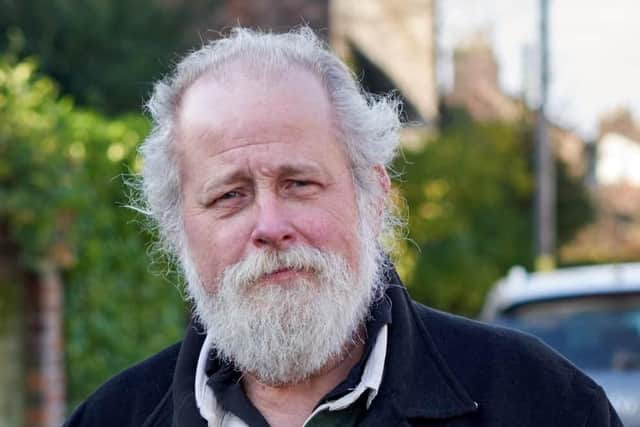Retired Yorkshire farmer urges people to move towards plant-based farming - as meat targets are scrapped
Coun Arnold Warneken was speaking after it was revealed that York and North Yorkshire’s route map to carbon negative – which outlines how the county will become carbon negative by 2040 – excludes targets around reducing meat production and consumption.
Agriculture is the single largest emitter of greenhouse gases in North Yorkshire.
Advertisement
Hide AdAdvertisement
Hide AdYork and North Yorkshire Local Enterprise Partnership (LEP) commissioned a detailed study which found that meat and dairy consumption would have to drop by 32 per cent by 2038 to reach their goal, while the number of cattle and sheep would have to reduce by 24 per cent.


But North Yorkshire County Council (NYCC) climate change officer Jos Holmes said the “extremely challenging” targets had “no political or community consensus behind them” and so weren’t included in the LEP’s plan.
“North Yorkshire is an agricultural economy and relies very heavily on its agricultural businesses and there wasn’t enough support to take that through,” she told Selby district councillors
Coun Warneken previously ran an organic farm which grew vegetables – but didn’t have livestock – and was elected as the Green candidate for the Ouseburn division on NYCC in May.
Advertisement
Hide AdAdvertisement
Hide AdHe said the route map was not ambitious enough and that meat reduction targets had to be included to make it meaningful.
He added: “Agricultural meat production is a huge contributor to climate change. There has to be a vision and commitment to moving towards a plant-based diet.
“I don’t expect farmers to suddenly stop having any livestock and go to plant-based farming. What I would wish they would do, given that they are custodians of that environment, is start reducing.”
Coun Warneken, who was the first ever Green councillor in the north of England when he was first elected 1991, added: “Most farmers want to protect the environment, but we have to give them the knowledge and the financial support. They’ve got to be part of the solution, not be part of the problem.”
Advertisement
Hide AdAdvertisement
Hide AdHe said farmers would need support from the government and NFU, but that there were growth markets farmers could look towards such as the move away from dairy towards oat milk.
The LEP’s plan, which it describes as “co-owned” with the region’s local authorities, business and the wider community, does include targets such as cutting car usage by 48 per cent in the next eight years, cutting food waste by 30 per cent and increasing cycling by 900 per cent.
Ms Holmes said that NYCC owned a number of tenanted farms, but could not enforce targets on tenants and that the responsibility to support farmers to decarbonise sat with the government.
She added: “In the strategy we’ve touched on supporting farms to calculate their carbon emissions and, on a farm-by-farm basis, seek to reduce those emissions.”